|
Dakar Senegal.....Day 9
|
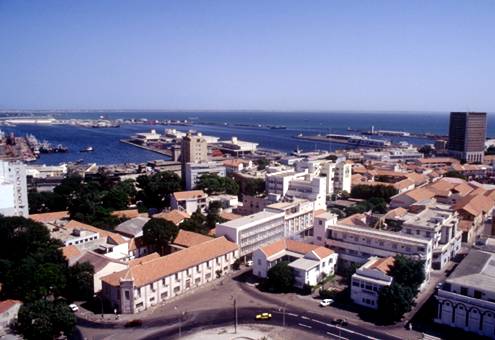 |
|
Dakar, city, western Senegal, the country's capital
and largest city, on Cap Vert Peninsula (the westernmost point of the
African continent) and on the Atlantic Ocean. The port of Dakar, one
of the finest of western Africa, is equipped with modern cargo-handling
facilities, including warehouses, a fueling station, and loading piers.
The city's strategic location, midway between Europe and South Africa
and Europe and South America, has made it an important air and maritime
center. The railroad and highway center of Senegal, Dakar is also connected
with other important African cities by air as well as by rail. In recent
years it has become an important fishing port, particularly for tuna,
as well as a fish-processing center. Other industries are peanut oil
processing, sugar refining, baking, brewing, and the manufacture of
soap and textiles. Notable modern buildings are an art museum and a
large medical center. It is the seat of a Roman Catholic archbishop.
The University of Dakar was founded in 1949; it includes the Institut
Fondamental d'Afrique Noire, a noted center for the study of African
culture. Dakar was founded in 1857 by the French. Its commercial importance
dates from 1885, with the completion of the railroad linking it with
the city of Saint-Louis, Senegal, on the Sénégal River. In 1902 Dakar
replaced St-Louis as the capital of French West Africa. Dakar was a
French commune in Senegal from 1887 to 1924, when it was established
as an autonomous district known as Dakar and Dependencies. In 1946 this
district was incorporated with Senegal. During World War II Dakar was
controlled by the French Vichy government until U.S. forces invaded
North Africa and occupied the city from 1942 until the end of the war.
Population (2000 estimate) 2,079,000. . Language: French ...... current
Exchange Rate 1 US dollar = 487.34 CFA Franc *** CFA:Communaute Financiere
Africaine*** (African Financial Community)
|
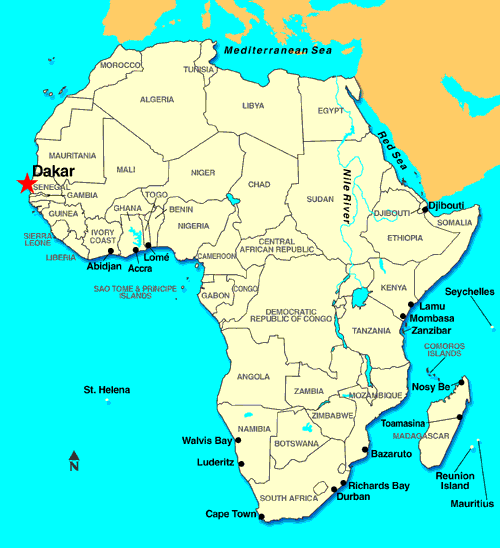 |
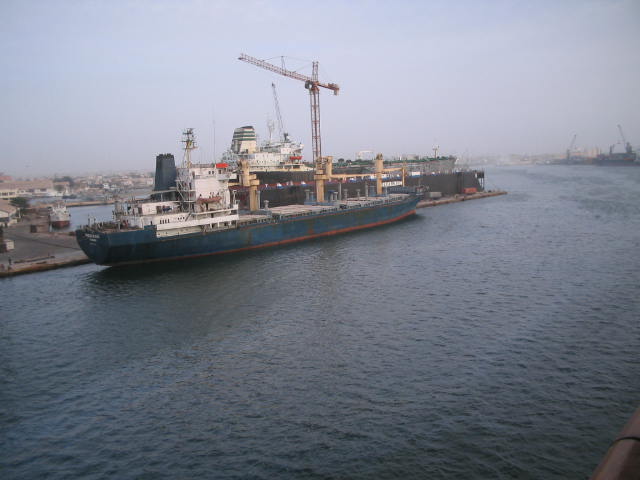 |
|
Tied up at the dock - we were early.
|
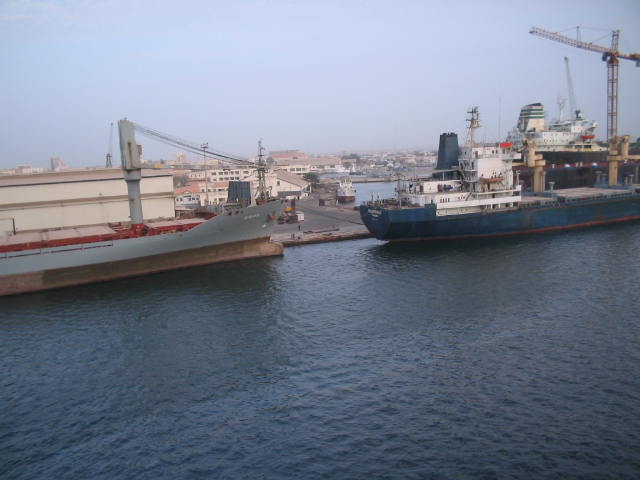 |
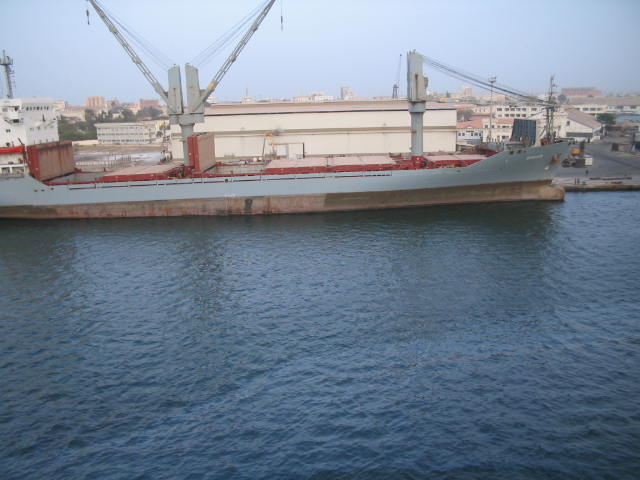 |
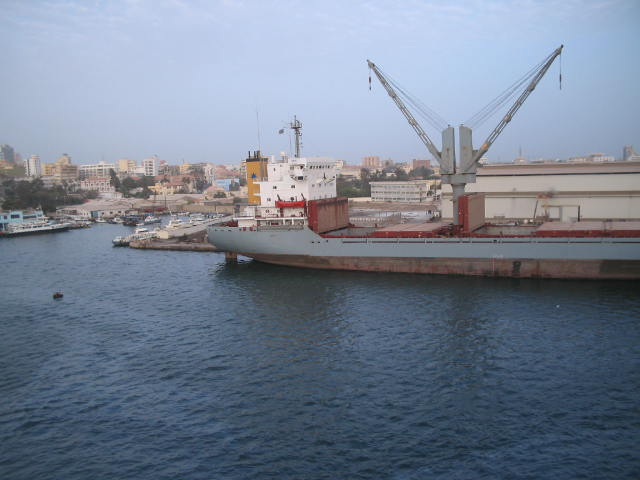 |
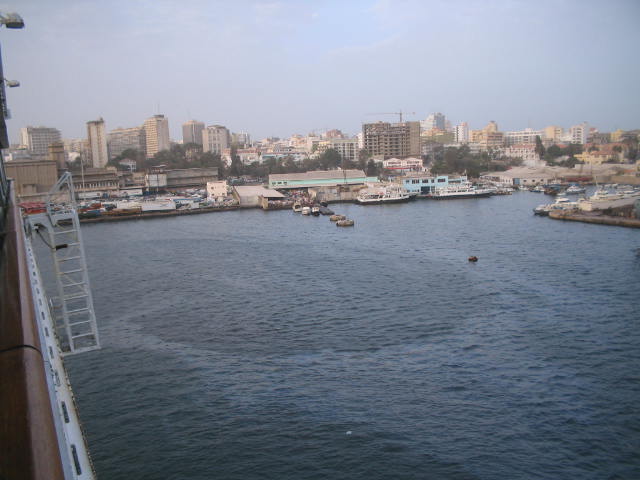 |
|
The photos below are from the Starboard side facing
the dock.
|
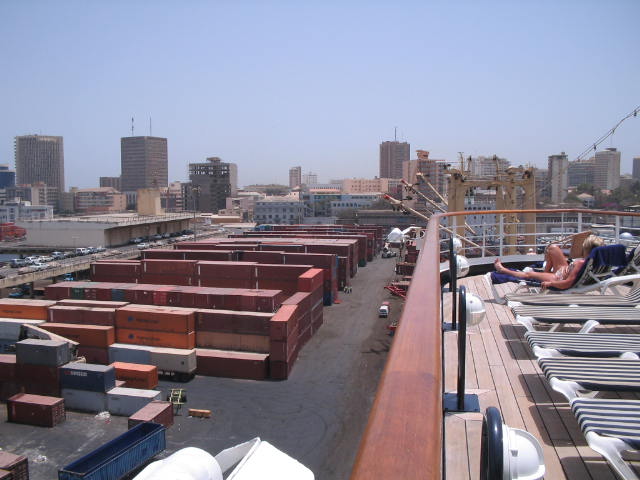 |
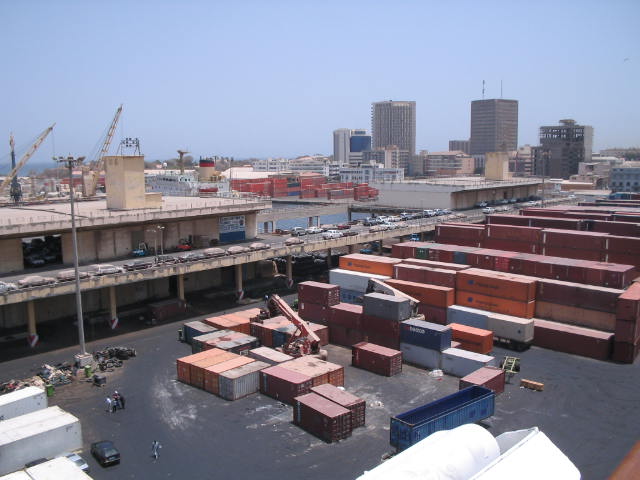 |
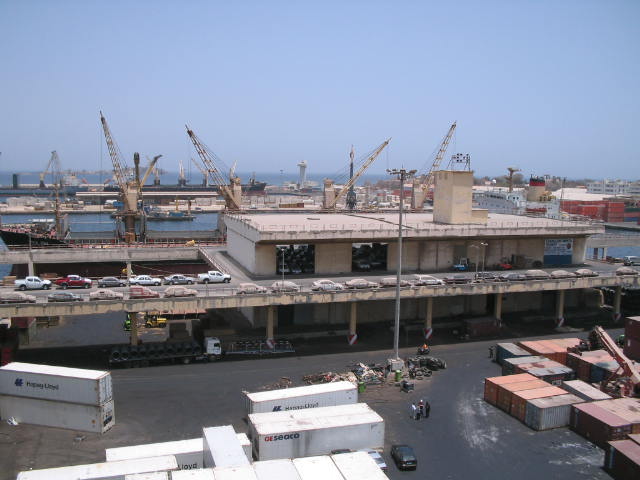 |
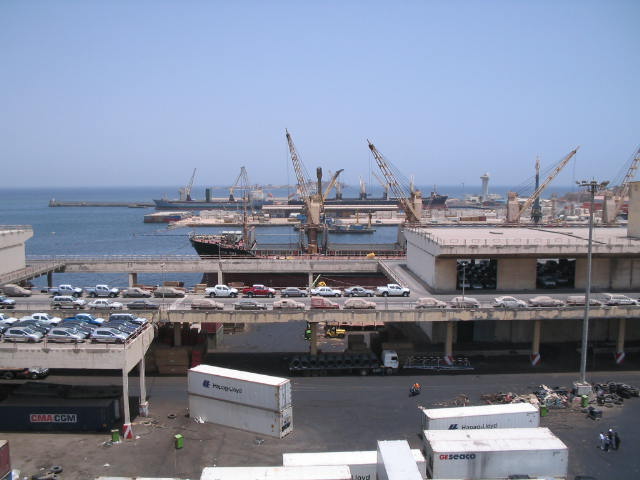 |
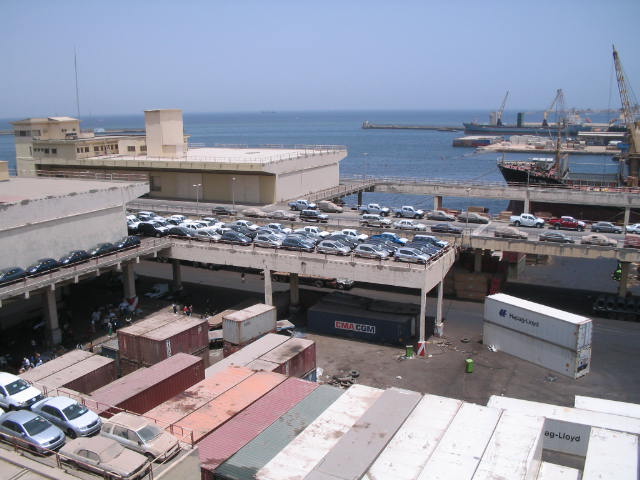 |
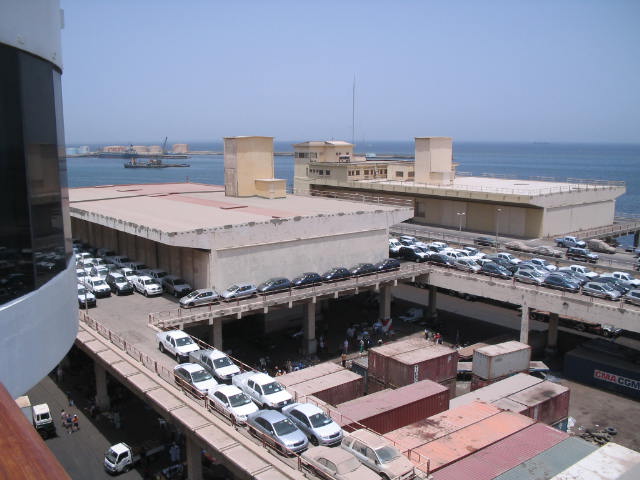 |
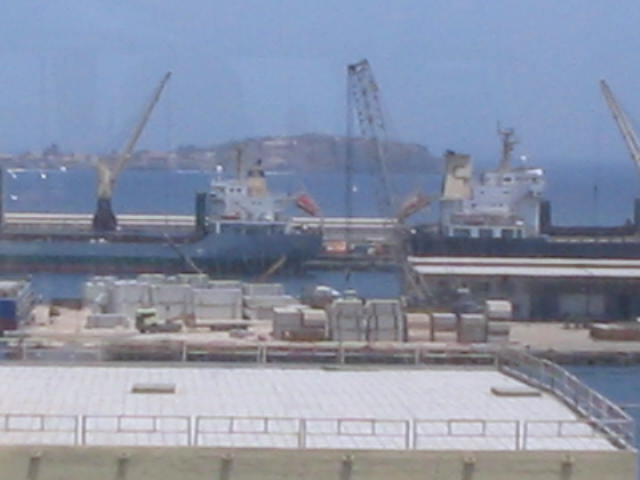 |
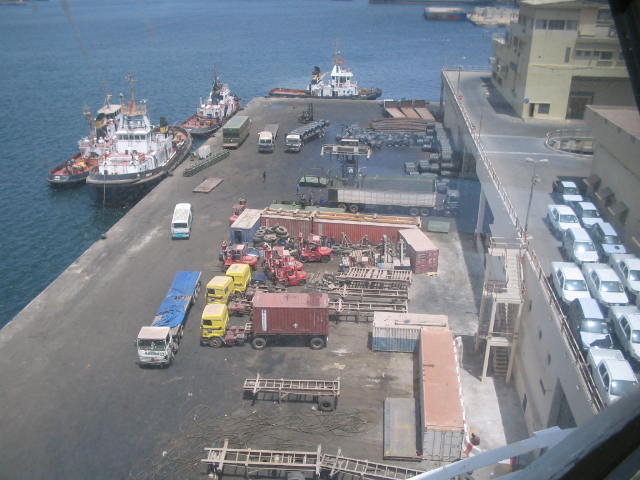 |
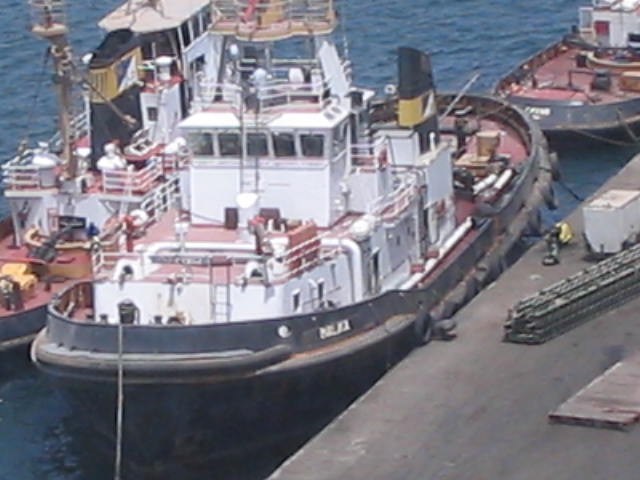 |
|
The photos below were taken from the forward part
of the ship.
|
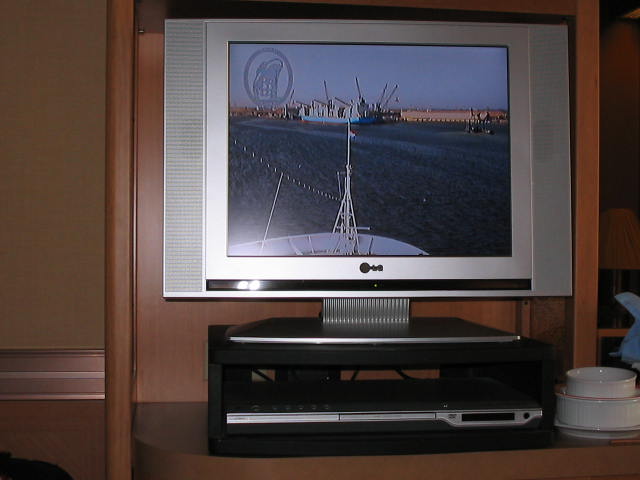 |
|
This photo of the TV the Crows Nest camera is looking straight ahead. |
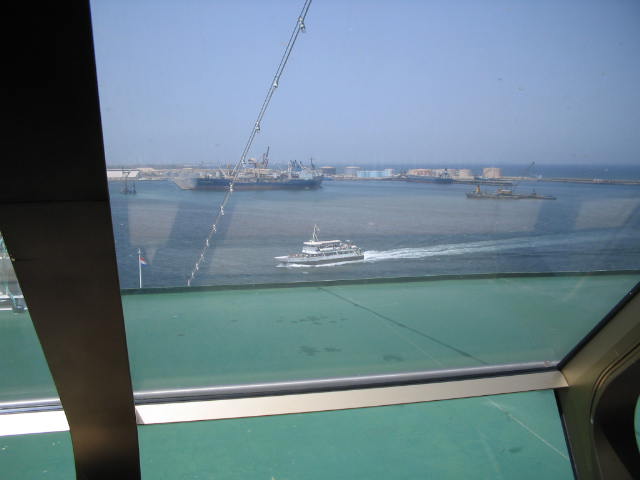 |
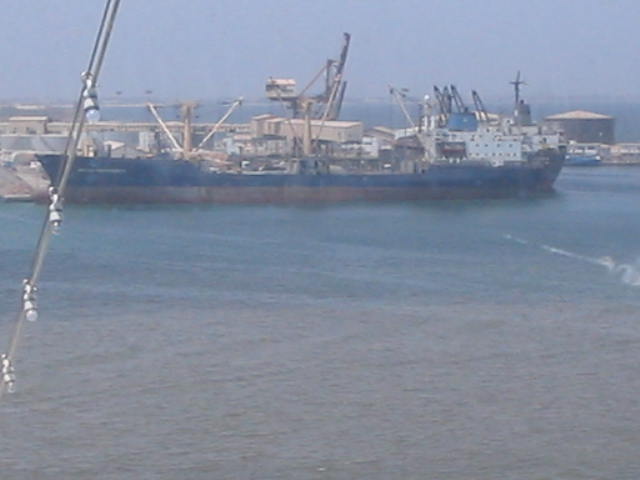 |
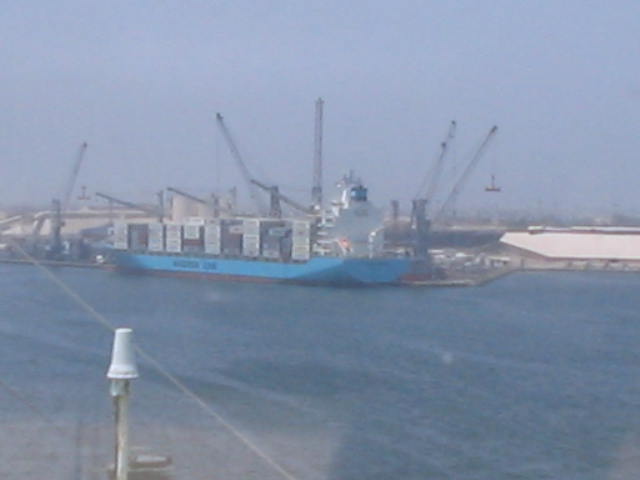 |
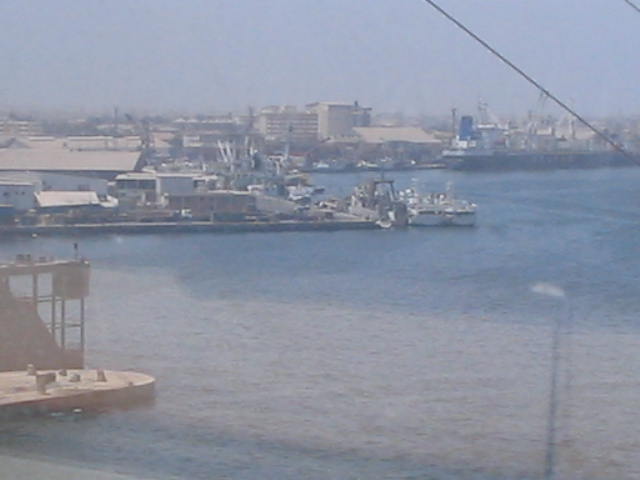 |
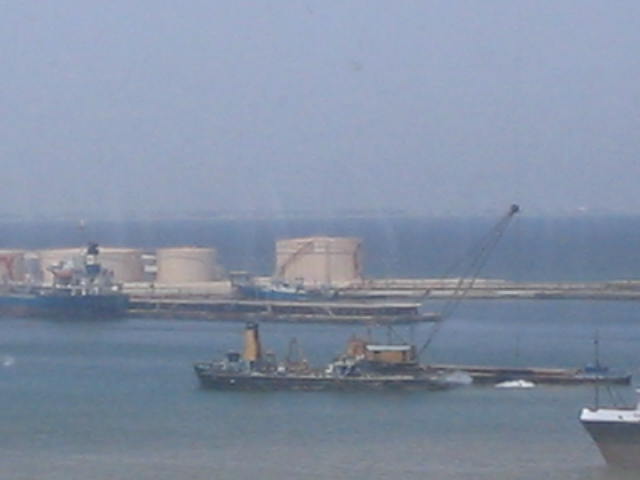 |
|
Dredging the harbor.
|
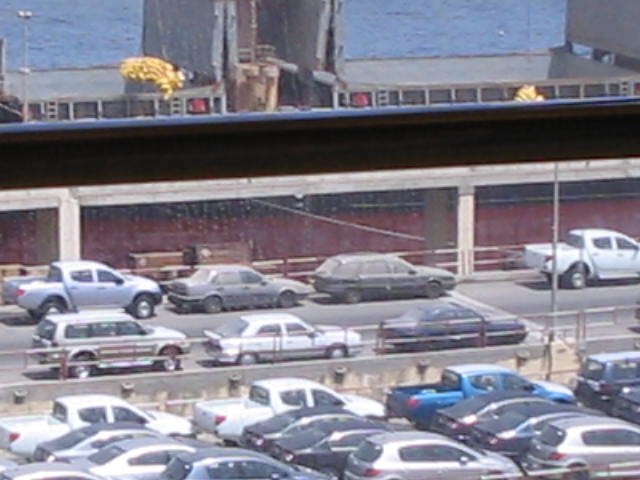 |
| Below are photos of our departure from Dakar. I was sitting by a window in a restaurant and for the next hour before dark I tried to get some of the more interesting places. Unfortunately, even though I had the camera set on full magnification, the distance was too great. |
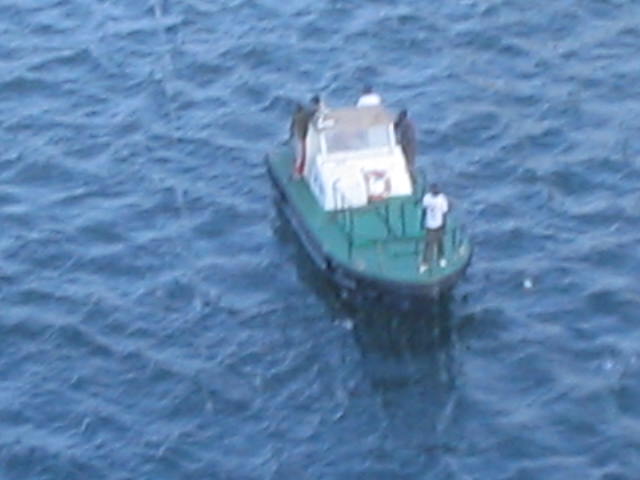 |
|
The pilots boat coming to get him (top) and going
back to shore with him.
|
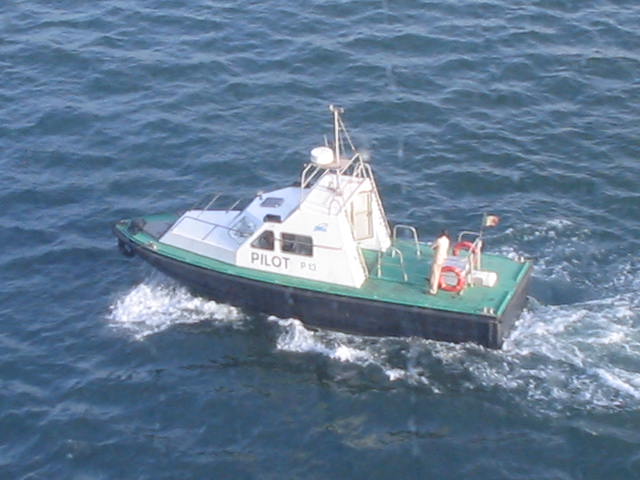 |
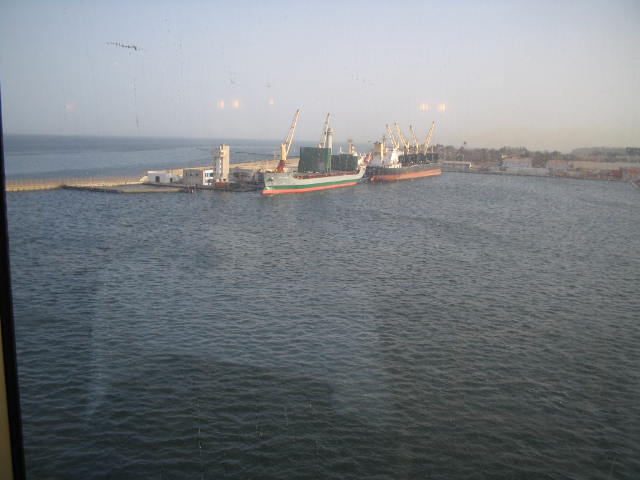 |
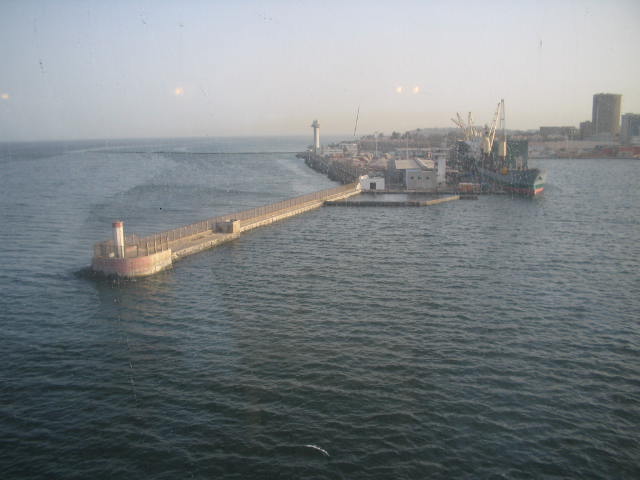 |
|
Leaving Dakar harbor.
|
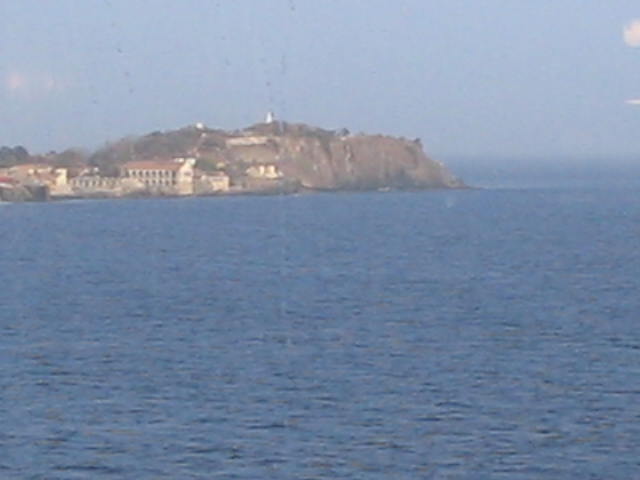 |
| The above and below are of the Ile de Gorre. Between 1600 and 1900 this island was the lockup for the men, women and children being held as slaves awaiting transport to the new world. Dakar was probably the major port for this. |
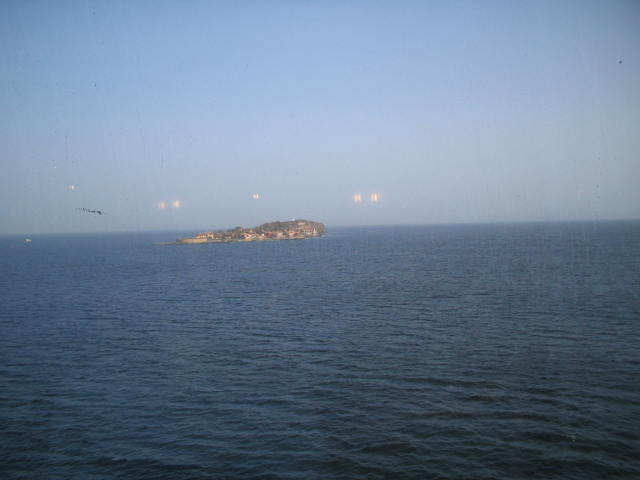 |
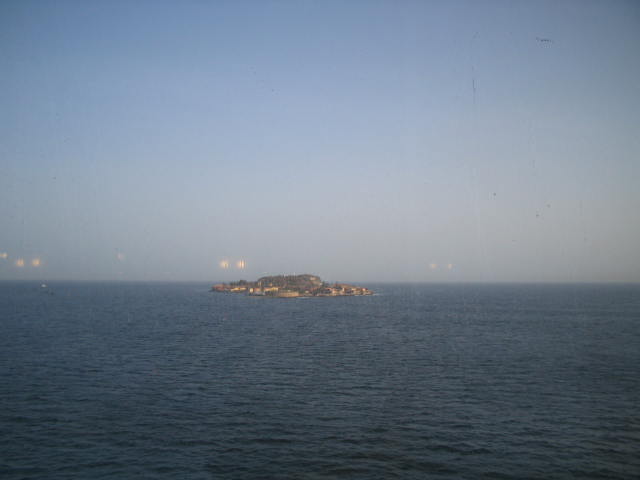 |
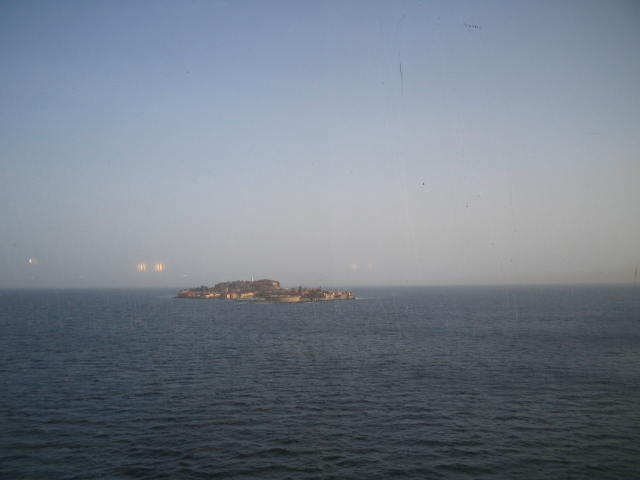 |
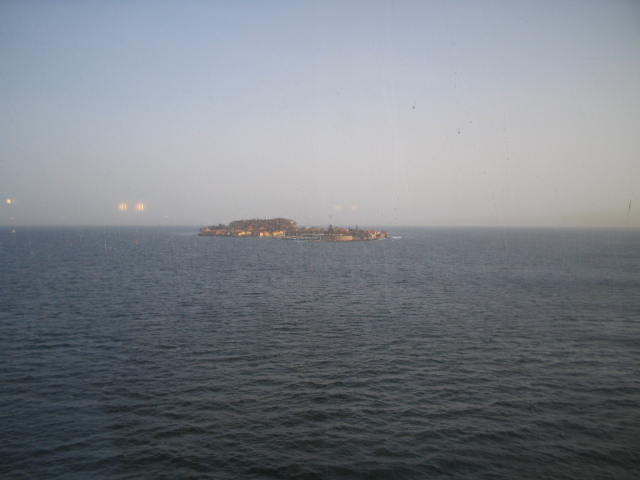 |
|
End of April 13 .............. Cruise day 9
|